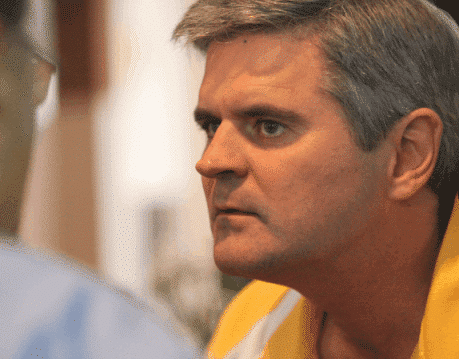
Entrevestor, a news service that reports on the Atlantic Canadian start-up scene, has released a study conducted during January and February, which claims a 43% employment increase in the start-up sector during 2013.
Extrapolating from that, if the University of Berkeley claim that every high-tech job leads to the creation of 4.3 “spin-off” jobs, jobs created directly or indirectly as a result of the recent Maritime start-up “boom” totals approximately 15,000. This outpaces flat employment figures for the region, which indicate a 0.3 overall employment increase, including for Newfoundland and Labrador, whose construction sector is due to sag this year owing to a dip in workers needed for the pending oil-and-gas boom.
AOL co-founder Steve Case has been talking up “the rise of the rest” for a couple years in the United States, deemphasizing the need for entrepreneurs from Iowa, say, to relocate to Silicon Valley, and growing their agile businesses where they live.
The surprise factor for the start-up scene in general is its explosive growth. While the 43% job growth is impressive, it’s the 52% growth that the companies surveyed by Entrevestor project into 2014 that catches one’s attention. The problem this year won’t be hiring people, but finding qualified local candidates.
The apparent success of the start-up scene in the Maritimes, if it can be sustained, is a nice reversal of the trend during the last decade or more in which Maritimers chase the ups and downs of the resource economy across the West.
The survey found that the average IT start-up salary was $52,000, with salaries increasing to $55,200 in the life sciences sector and $56,300 in cleantech.
“The reason that Startup initiatives (Startup America, StartUp Canada, Startup Spain, Startup Malaysia etc.) took root and spread so quickly internationally was because leaders bet that their innovation-based startup sectors would drive much needed employment gains to help economies recover,” said Dawn Jutla, a professor of entrepreneurship at the Sobey School of Business. “This economic insight is playing out right here at home in Atlantic Canada with our higher startup employment figures.”
The companies surveyed reported a 30% increase in revenue over 2012, and report a 44% increase in payroll, to $75.8 million.
Revenue from venture capital was up, too, from $23 million to $30.8 million, a great deal of that coming from outside the Atlantic region.
But the Maritimes have seen its share of high-profile exits, too. In 2011, San Francisco-based Salesforce.com bought Fredericton’s Radian6 for $326 million and then returned in 2012 to buy Halifax’s GoInstant for approximately $50 million, while Q1 Labs, also from Fredericton, was snapped up by IBM.
After four years hustling in Silicon Valley, Dan Martell returned to Moncton to launch his new company, Clarity, which has been a poster child for successful Canadian start-ups.
The history of the Maritimes in relation to Canada is, as they say on Facebook, complicated. In pre and early Confederation days, the Maritimes experienced both a resource boom and a shipbuilding boom, and sent literally life-saving aid to starving prairie dirt farmers during the worst years of the Depression.
By the ‘70s, though, during the war between Ottawa and oil rich Alberta, which took the the form of the National Energy Program, then mayor of Calgary, Ralph Klein, famously quipped, “Let the Eastern bastards freeze in the dark.” Not many Maritimers have forgotten Klein’s Marie Antoinette moment. It ended up becoming a bumper sticker slogan.
The apparent success of the start-up scene in the Maritimes, if it can be sustained, is a nice reversal of the trend during the last decade or more in which Maritimers chase the ups and downs of the resource economy across the West, whether oil in Fort MacMurray or potash in Saskatchewan.
Resources are fleeting. Human ingenuity is not.
What’s especially encouraging about regional start-up booms is that the “resource” driving start-up culture doesn’t come out of the ground, but out of the human brain. In the end, it’s intelligence and innovation that will make or break local economies. Oil is a fleeting thing.
___________________________________________________________________________________________________________
Leave a Reply
You must be logged in to post a comment.




 Share
Share Tweet
Tweet Share
Share




Comment